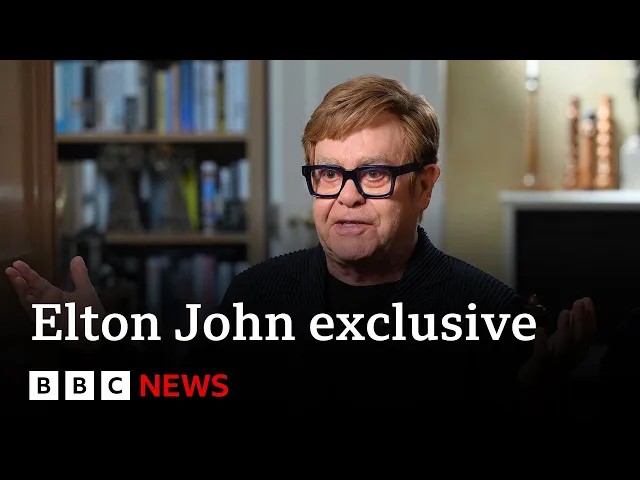Elton John: I would take government to court over AI plans

Elton John battles against music AI exploitation
For over 50 years, Elton John has shaped popular music with his unmistakable talent and colorful persona. Now, the legendary artist is stepping into a new arena, wielding his influence to protect musicians against what he sees as technological exploitation. In a recent BBC interview, John voiced serious concerns about artificial intelligence's potential impact on the music industry, threatening legal action against the UK government over proposed AI regulations.
Key insights from Elton John's AI stance
- John has vowed to take the UK government to court if they allow AI to use artists' work without consent or compensation, calling it "exploitation" and "identity theft"
- He believes AI regulation must protect artists' livelihoods and the music industry's future, expressing concern that creators' control over their own work is being eroded
- Despite being in his late 70s, John remains actively engaged in industry issues, demonstrating his commitment to protecting new generations of musicians from technological threats
The technological threat to artistic authenticity
The most compelling aspect of John's interview is his framing of AI's use of artists' work as "identity theft" rather than mere copyright infringement. This perspective elevates the conversation beyond legal technicalities to something more fundamental: an artist's right to their creative identity. As AI systems become increasingly sophisticated at mimicking musicians' distinctive styles, the line between inspiration and impersonation blurs dangerously.
This matters immensely in today's music landscape, where streaming platforms have already disrupted traditional revenue models for artists. With AI potentially flooding these platforms with algorithmically generated content that mimics established artists, the economic pressures on musicians could intensify dramatically. The industry faces a watershed moment where defining ownership of creative expression will shape music's future.
Beyond the headlines: broader implications
What John's intervention doesn't fully address is the international dimension of AI regulation. While he focuses on UK policy, AI development and deployment operate globally. Countries with less stringent creative protections could become havens for AI music generation that samples and mimics artists regardless of their consent.
Consider the case of Holly Herndon, a musician who has taken a different approach by developing her own AI vocal model called "Holly+" and establishing a cooperative that shares revenue from its use. This model suggests alternative frameworks where artists might embrace AI while maintaining creative
Recent Videos
How To Earn MONEY With Images (No Bullsh*t)
Smart earnings from your image collection In today's digital economy, passive income streams have become increasingly accessible to creators with various skill sets. A recent YouTube video cuts through the hype to explore legitimate ways photographers, designers, and even casual smartphone users can monetize their image collections. The strategies outlined don't rely on unrealistic promises or complicated schemes—instead, they focus on established marketplaces with proven revenue potential for image creators. Key Points Stock photography platforms like Shutterstock, Adobe Stock, and Getty Images remain viable income sources when you understand their specific requirements and optimize your submissions accordingly. Specialized marketplaces focusing...
Oct 3, 2025New SHAPE SHIFTING AI Robot Is Freaking People Out
Liquid robots will change everything In the quiet labs of Carnegie Mellon University, scientists have created something that feels plucked from science fiction—a magnetic slime robot that can transform between liquid and solid states, slipping through tight spaces before reassembling on the other side. This technology, showcased in a recent YouTube video, represents a significant leap beyond traditional robotics into a realm where machines mimic not just animal movements, but their fundamental physical properties. While the internet might be buzzing with dystopian concerns about "shape-shifting terminators," the reality offers far more promising applications that could revolutionize medicine, rescue operations, and...
Oct 3, 2025How To Do Homeless AI Tiktok Trend (Tiktok Homeless AI Tutorial)
AI homeless trend raises ethical concerns In an era where social media trends evolve faster than we can comprehend them, TikTok's "homeless AI" trend has sparked both creative engagement and serious ethical questions. The trend, which involves using AI to transform ordinary photos into images depicting homelessness, has rapidly gained traction across the platform, with creators eagerly jumping on board to showcase their digital transformations. While the technical process is relatively straightforward, the implications of digitally "becoming homeless" for entertainment deserve careful consideration. The video tutorial provides a step-by-step guide on creating these AI-generated images, explaining how users can transform...
